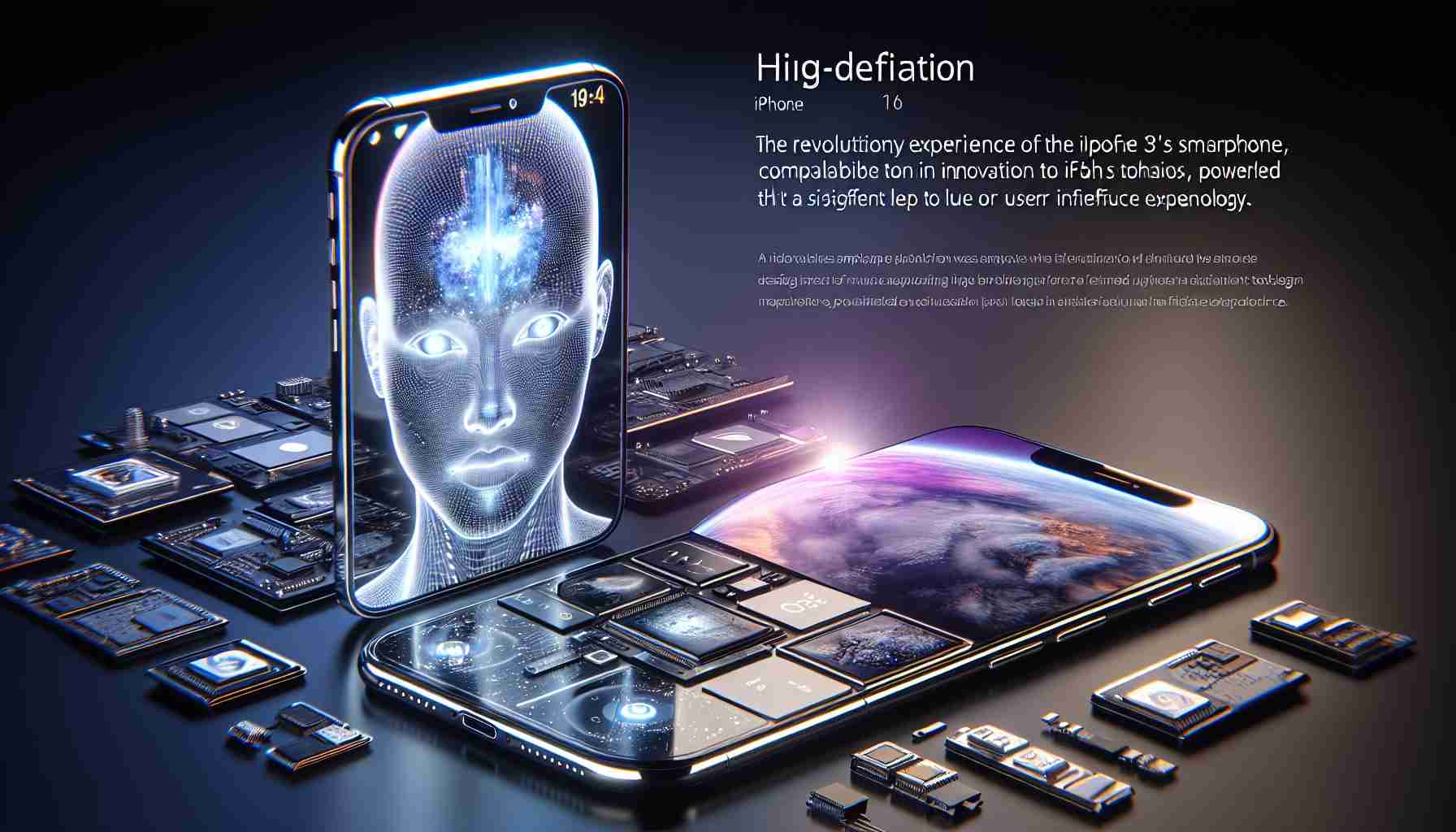The Next Tech Marvel: Apple’s iPhone 16 to Embrace AI
Apple Inc. is poised to intensify the smartphone competition with the anticipated launch of its iPhone 16, featuring advanced artificial intelligence (AI) capabilities. Heralding a new era for its devices, Apple has been laying the groundwork for a significant foray into AI.
The iPhone 16, equipped with the freshly minted iOS 18 and the powerful A18 chip, promises a suite of AI-driven features designed to assist users in various ways. The smartphone’s Neural engine, which has undergone an upgrade, ensures efficient AI operations.
Siri Set for a Smarter Evolution
A critical aspect of Apple’s AI investment is the evolution of Siri, the voice assistant that has become synonymous with the iPhone’s user experience. Building on past innovations, Siri is anticipated to leap forward in intelligence and versatility, aiming to match or surpass counterparts like Amazon’s Alexa and Google Assistant.
Enhanced Communication and Creativity
In addition to Siri’s upgrades, Apple is tinkering with AI enhancements in the Messages app, potentially offering users smart responses and predictive text input, improving communication efficiency. This development aligns with recent insights from industry commentators who foresee AI becoming integral across various Apple services.
Moreover, Apple is reportedly collaborating with a partner to revamp its image editing capabilities, seeking to rival the AI-powered solutions already present in Google and Samsung smartphones. However, details of this partnership remain under wraps.
Broader Accessibility and Backward Compatibility
With the launch of iOS 18, AI advancements will not be exclusive to the iPhone 16; older models, starting from the iPhone 15 down the line, will gain access to these features, though less advanced devices will rely on cloud processing due to hardware constraints.
As competition escalates in the tech sector, the introduction of AI in the iPhone 16 represents Apple’s commitment to its smartphones’ continuous innovation, ensuring the brand remains at the forefront of consumer preference.
Questions & Answers:
– What AI-driven features can be expected with the iPhone 16?
The iPhone 16 will have enhancements in Siri’s capabilities, smart responses in Messages, predictive text input, and advanced image editing tools powered by AI.
– Will older iPhone models support the new AI features?
Yes, older models from the iPhone 15 down will support the new AI features with some possibly relying on cloud processing due to less advanced hardware.
– How is Apple positioning itself in the competitive smartphone market with the iPhone 16’s AI features?
Apple is leveraging these new AI enhancements to ensure that the iPhone remains a leading player in the competitive smartphone market and to bring unprecedented user experiences to retain consumer preference.
Key Challenges or Controversies:
There might be concerns about privacy and data security with the implementation of advanced AI features. Ethical considerations regarding bias within AI algorithms and the impact of AI on labor markets might also be raised.
Another challenge is maintaining the balance between onboard AI capabilities and reliance on cloud processing for older models, as this might raise concerns about performance disparities among users.
Advantages:
Advanced AI features can significantly improve user experience, offering personalized and efficient interactions, enhanced productivity, and greater accessibility. The AI could potentially provide adaptive battery life improvements, better app recommendations, and enhanced privacy settings.
Furthermore, the backward compatibility ensures that more users can enjoy the latest features without being compelled to purchase the newest models, fostering brand loyalty.
Disadvantages:
The increased complexity of AI systems might lead to higher costs, potentially making the iPhone 16 more expensive. There might also be an increased risk of obsolescence for older models that can’t fully support the AI features, which could lead to frustration among users with older devices.
An increased reliance on AI might also raise concerns about too much data being processed, potentially affecting user privacy. The use of cloud processing by older devices might result in slower performance for AI features and concerns over data security when transmitted over the internet.
For more information on the broader AI and smartphone industry, you can visit major technology news outlets or directly check out tech companies’ official websites such as:
– Apple
– Google
– Amazon
– Samsung
